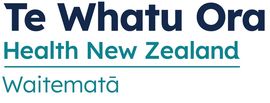North Auckland > Public Hospital Services > Te Whatu Ora – Health New Zealand Waitematā >
North Shore Hospital Maternity Services | Waitematā | Te Whatu Ora
Public Service, Maternity, Maternity/Birthing Facilities, Obstetrics and Gynaecology
Antenatal HIV Screening
The aim of HIV testing in pregnancy is to identify HIV infection in pregnant women. Since 2000, approximately 18 children in New Zealand have contracted HIV because it was undetected during pregnancy in their mothers.
Screening for HIV is recommended for all pregnant women.
- The screening test for HIV is offered at the same time as other routine antenatal blood tests (Rhesus factor and blood cell antibodies, full blood count, hepatitis B, rubella and syphilis). One sample of blood can be used for all the tests.
- The health professional who requested the blood test will provide you with your results.
- Most pregnant women will not have HIV.
Screening results:
- A reactive screening result does not mean you have HIV
- if you get a reactive screening result you will be asked to provide another blood sample
- the second sample will tell you for sure whether you have HIV
- in most cases women who get a reactive screening test will not have HIV.
Positive confirmatory (second) HIV tests:
- if your HIV confirmatory test is positive, you have HIV
- professional advice, help and support will be given to help you to look after your health, your baby’s health and that of your partner, family or whānau.
- you will be referred to a specialist for care and treatment for your HIV
- in many cases your LMC will continue to provide your pregnancy care.
Informed consent for antenatal screening
Informed consent, informed choice or informed decision making are important components of screening during pregnancy. Health practitioners need to take the time to clearly explain to women what the screening tests mean and the steps along the screening pathway, before they are faced with an unexpected result.
It is important women have the opportunity to be provided with sufficient information to think about the potential decisions they might need to make along the pathway before agreeing to participate in screening. Women may choose to include their family and whānau to support them to make their decisions.
Document Downloads
-
HIV Testing in Pregnancy.pdf.pdf.pdf.pdf.pdf.pdf.pdf
(PDF, 191.2 KB)
English
-
HIV Testing in Pregnancy.pdf.pdf.pdf.pdf.pdf.pdf.pdf
(PDF, 215.7 KB)
Chinese (Simplified)
-
HIV Testing in Pregnancy.pdf.pdf.pdf.pdf.pdf.pdf.pdf
(PDF, 190.8 KB)
Chinese (Traditional)
-
HIV Testing in Pregnancy.pdf.pdf.pdf.pdf.pdf.pdf.pdf
(PDF, 209.6 KB)
Hindi
-
HIV Testing in Pregnancy.pdf.pdf.pdf.pdf.pdf.pdf.pdf
(PDF, 337.7 KB)
Korean
-
HIV Testing in Pregnancy.pdf.pdf.pdf.pdf.pdf.pdf.pdf
(PDF, 112 KB)
Māori
-
HIV Testing in Pregnancy.pdf.pdf.pdf.pdf.pdf.pdf.pdf
(PDF, 114.3 KB)
Samoan
-
HIV Testing in Pregnancy.pdf.pdf.pdf.pdf.pdf.pdf.pdf
(PDF, 111 KB)
Swahili
-
HIV Testing in Pregnancy.pdf.pdf.pdf.pdf.pdf.pdf.pdf
(PDF, 112.5 KB)
Tongan

